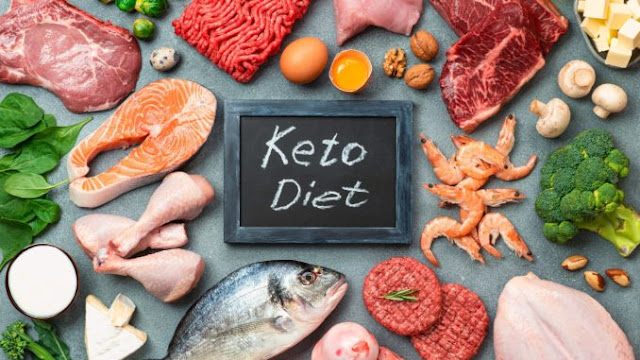If you're interested in trying out a ketogenic diet, also known as a "keto diet," you're in the right place. In this article, we'll cover the basics of the keto diet, including what it is, how it works, and who might benefit from trying it. We'll also provide some tips for getting started and offer some delicious recipe ideas to help you stick to your new way of eating.
What is the Ketogenic diet?
The ketogenic diet is a high-fat, low-carbohydrate diet that has gained popularity in recent years as a weight loss and health improvement tool. It involves drastically reducing your intake of carbohydrates and increasing your intake of fats. The goal of this diet is to get your body into a state of ketosis, where it is burning fat for fuel rather than carbohydrates.
How does the ketogenic diet work?
The ketogenic diet works by drastically reducing your intake of carbohydrates, which causes your body to turn to fat for fuel. When you eat a diet high in carbohydrates, your body converts those carbs into glucose, which it uses for energy. However, when you eat a diet low in carbs and high in fat, your body is forced to use fat for fuel instead. This process is called ketosis.
Who might benefit from the ketogenic diet?
The ketogenic diet has been shown to be effective for weight loss and may also have other health benefits, such as improved blood sugar control and reduced risk of heart disease. However, it is not suitable for everyone and should be approached with caution.
Here are some groups of people who may benefit from the ketogenic diet:
People with obesity or excess weight: The keto diet can be an effective weight loss tool, as it helps you burn fat for fuel and may reduce appetite.
People with type 2 diabetes: The keto diet may help improve blood sugar control and reduce the need for medication in some people with type 2 diabetes.
People with epilepsy: The keto diet has been used for decades to help reduce the frequency and severity of seizures in children with epilepsy.
Before starting the ketogenic diet, it's important to speak with a healthcare professional to determine if it is safe and appropriate for you.
Tips for getting started on the ketogenic diet
If you're interested in trying out the ketogenic diet, here are some tips to help you get started:
Plan ahead: It can be helpful to plan out your meals and snacks in advance to ensure you are getting enough fat and protein and staying within your carb limits.
Keep track of your macros: To stay in ketosis, you'll need to track your macronutrient intake (fat, protein, and carbs) using a food tracking app or by keeping a food diary.
Eat plenty of healthy fats: Healthy fats, such as avocado, olive oil, nuts, and seeds, are an important part of the ketogenic diet. Make sure to incorporate these into your meals and snacks.
Avoid processed and sugary foods: Processed and sugary foods are high in carbs and can sabotage your efforts to stay in ketosis. Instead, opt for whole, unprocessed foods like vegetables, meats, and healthy fats.
Drink plenty of water: Staying hydrated is important on any diet, but it's especially important on the ketogenic diet, as it can help prevent the "keto flu" (a group of symptoms that may occur when you first start the diet). Aim for at least 8-12 cups of water per day.
Keto recipes
Keto recipes are a great option for those following a low carbohydrate diet. They typically involve using ingredients that are high in healthy fats and protein, and low in carbs. Some popular keto recipes include things like avocado and egg breakfast bowls, grilled salmon with broccoli, and zucchini noodles with a creamy almond butter sauce. As a gift, here is a free collection of keto recipes. I hope you find some delicious and satisfying recipes to try out!


Comments
Post a Comment